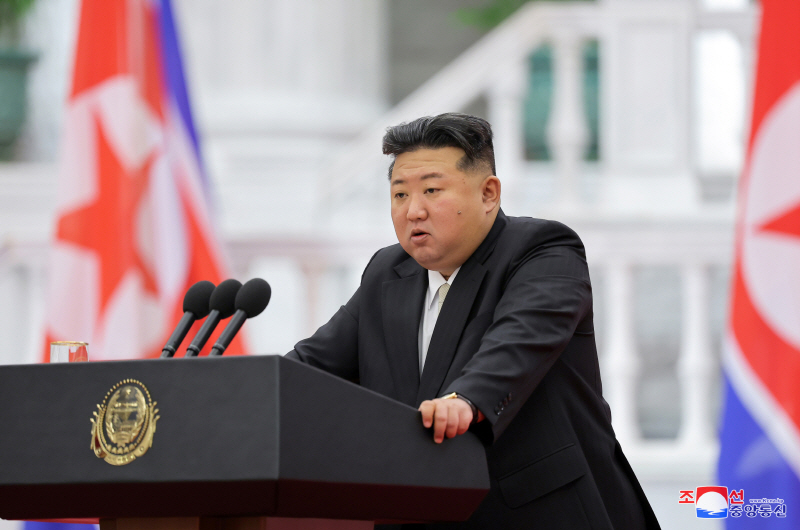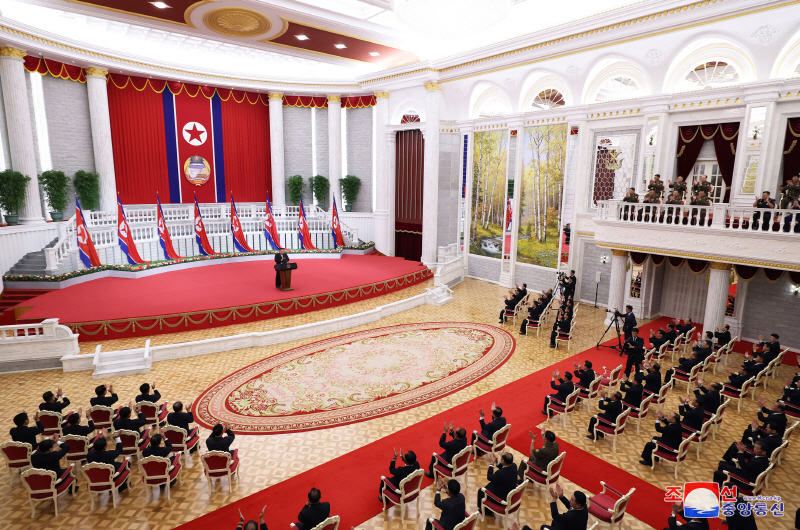Signs of strain between North Korea and China are emerging on multiple fronts, as the Chinese ambassador to North Korea appears to have skipped a key political event marking the 76th anniversary of North Korea’s founding on September 9.
This absence hints at growing cracks in what was once a close relationship.
A South Korean Unification Ministry official told the JoongAng Ilbo, a leading South Korean newspaper affiliated with the Korea Daily, on September 10, “It has been confirmed that the Russian ambassador attended the event, according to North Korean media, but the Chinese ambassador, Wang Yajun, was not seen, suggesting he may not have attended.”

The lack of visual confirmation of Wang’s presence from North Korean outlets supports this speculation.
The Chinese Embassy in North Korea clarified through its website that Deputy Ambassador Feng Chun-tai led a delegation of embassy diplomats to the 76th-anniversary celebrations and performances held on September 8 and 9.
However, if Wang’s absence is confirmed, this marks the second time the ambassador has missed a major North Korean event. In July, Wang also failed to attend the 71st anniversary of the Korean War armistice, a significant occasion for both North Korea and its ally, China.
His absence then, noted by many as unusual, was particularly striking given the presence of other foreign diplomats.

While relations between North Korea and Russia are drawing closer, the North Korea-China relationship has faced unusual developments in recent months. In May, China removed a commemorative plaque that marked the stroll taken by North Korean leader Kim Jong-un and Chinese President Xi Jinping during Kim’s visit to Dalian in 2018.
Additionally, in July, China reportedly demanded that all North Korean workers in the country—who represent a major source of foreign income for Pyongyang—return home.
North Korea has also been tightening control over its Chinese expatriates, historically seen as a bridge between the two nations, while implementing policies to curb the use of Chinese yuan and limit access to Chinese content among its population.
Oh Kyung-seop, a researcher at the Korea Institute for National Unification, noted that “China, influenced by the U.S.-China strategic rivalry, is likely mindful of its relations with the U.S. and South Korea.” He added that “given these structural factors, tensions between North Korea and China are expected to persist for the time being.”
BY YEONGGYO CHUNG, YOUNGNAM KIM [chung.yeonggyo@joongang.co.kr]


![North Korean commando-turned-South Korean pastor Kim Shin-jo passes away at 83 North Korean commando-turned-pastor Kim Jae-hyun, better known by his old name Kim Shin-jo [YONHAP]](https://www.koreadailyus.com/wp-content/uploads/2025/04/0409-pastor-100x70.jpg)
![Satellite images reveal North Korean warship building activity A satellite imagery of a North Korean ship [MAXAR TECHNOLOGIES]](https://www.koreadailyus.com/wp-content/uploads/2025/04/0409-ship-100x70.jpg)
![Korea, Japan, China to push for trilateral FTA to take on Trump’s tariffs U.S. President Donald Trump speaks during the National Republican Congressional Committee dinner at the National Building Museum in Washington on April 8. [REUTERS]](https://www.koreadailyus.com/wp-content/uploads/2025/04/0409-Trump-100x70.jpg)